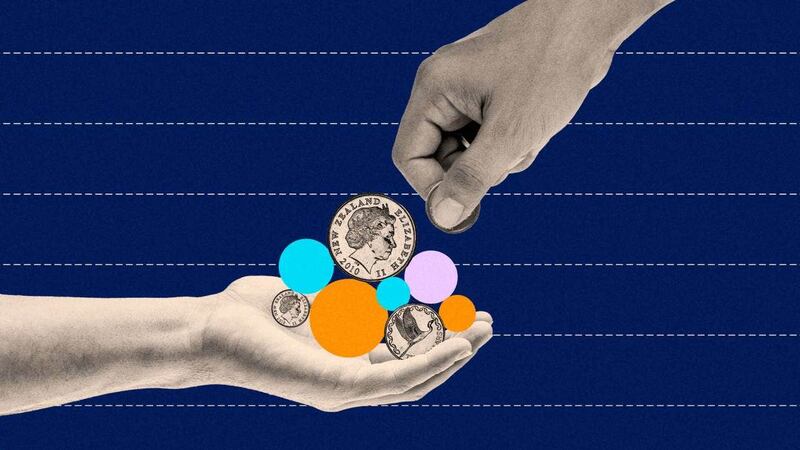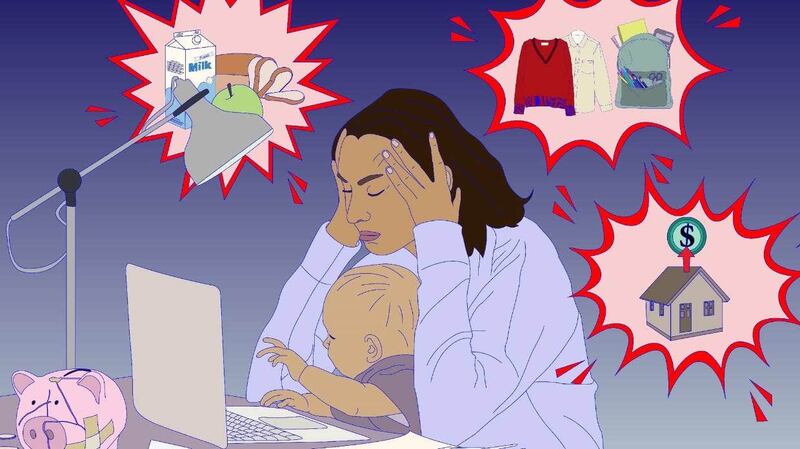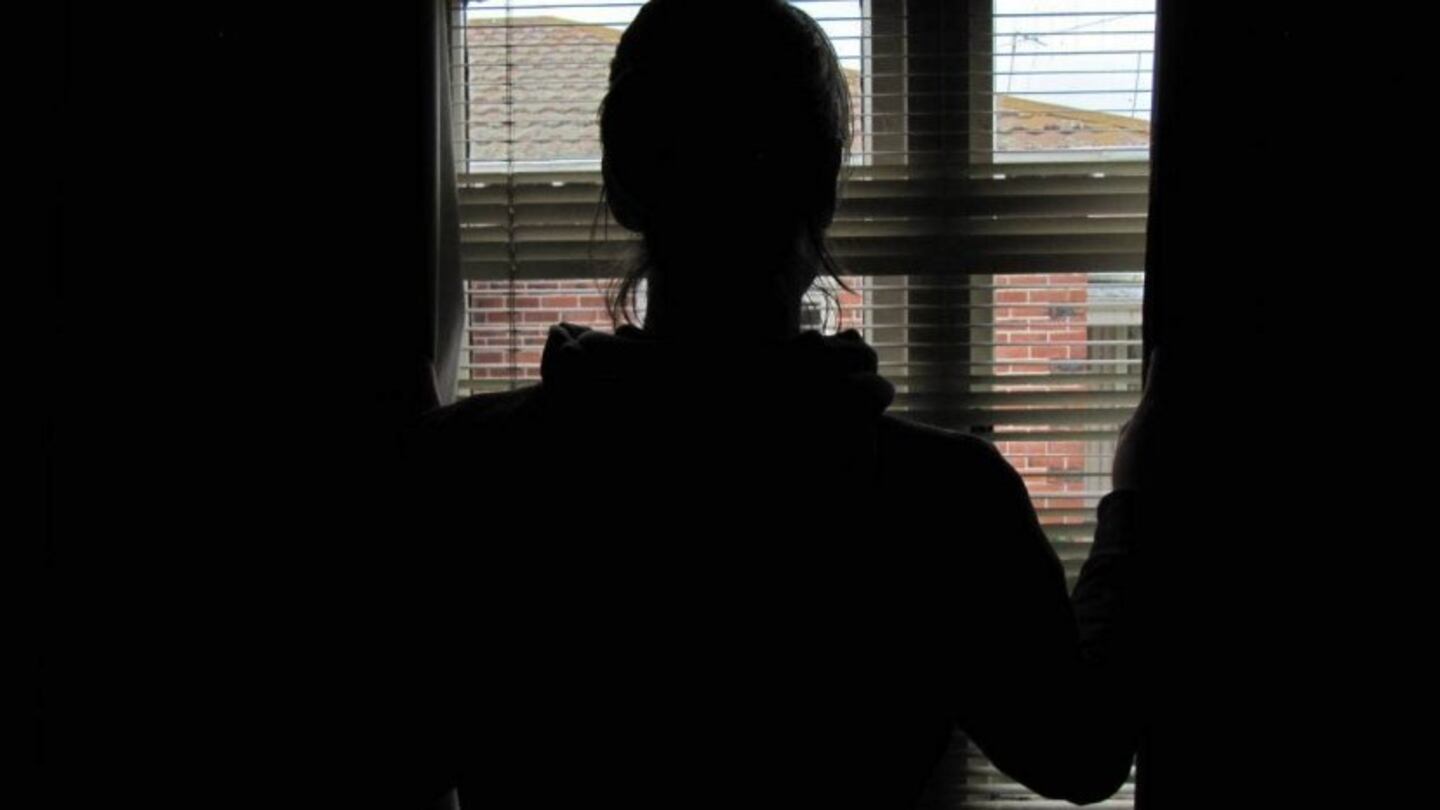Hayley lives on the benefit and struggles to provide food, clothing and other basic items for her 5-year-old son. Esther Ashby-Coventry / Stuff
By Ripu Bhatia, Stuff
A struggling single mother who receives the benefit sold her hair for $45 to pay her bills.
Hayley, who doesn’t want her real name used, spent the money on groceries and nappies for her 5-year-old son who is developmentally delayed.
She said the Government’s 7.22% increase to main benefits, which kicks into play on April 1, will do little to alleviate the hardships she suffers.
“I hunted down a secondhand uniform for my 5-year-old who is starting school. I feel like a terrible mum for sending him off to school in second-rate clothing,” Hayley, who lives in the Wellington region, said.
"I hunt down free food from community organisations or community kitchens, or short-dated, or dented and damaged clearance food at supermarkets."
Hayley said many people view beneficiaries as lazy and carefree, but that is far from the truth, and inflation hitting a 32-year high hasn't made things easier.
"Now it's whether to turn on the heater, and can I afford to drive my child to the local playground considering the price of petrol,” she said.
"Do I take a shower every day or make it every few days just to save a bit of power and gas and shampoo? We don't go to the park and I stink."
Hayley’s son is developmentally delayed, neurodiverse and non-verbal. He has a sensory food aversion that means he "literally won't eat more than crackers and chips” and isn't toilet-trained.
"I have to lace his water with iron and vitamin drops. Biting, hitting, kicking, unable to dress himself, he ended up in hospital needing iron infusions,” she said.
"He's at school, I am unbelievably relieved that he is able to do that, and I have a brief moment in time to recover myself.”
Hayley receives several forms of government support. These include the main benefit, accommodation supplement, disability allowance, family tax credits and winter energy payments which add up to around $900 a week.
“Almost $600 goes on the mortgage. After rates, insurance, power and internet there's barely anything left for food or petrol, let alone new clothes or car maintenance. Certainly nothing for entertainment or pleasure,” she said.
“Goodness help me when it's time to re-fix [mortgage]. And current rent is about the same for many anyhow. It's a real stretch now, so any increase is going to be the breaking point.

When money gets tight or a bill comes up, Hayley sells anything of value on Trade me. Source / Stuff
“But I literally couldn't sell or downsize either because I still wouldn't have enough to buy a lesser house outright, and no bank would give me another mortgage to cover the difference. I feel completely trapped.”
She said when money gets tight and a bill comes up, she sells anything of value on Trade Me.
"My last good pair of shoes, or toys my child wasn't quite done with. It gets cut back bit by bit until there's truly nothing left to cut,” she said.
"Forget Netflix or any luxuries, I never had them to start with."
Hayley hadn't been able to afford a haircut for two-and-a-half years and sold her ponytail for $45 to a company that makes wigs for people with alopecia or cancer.
"I had mixed feelings about it, my hair was a huge part of my appearance and identity. It had obviously been with me for a long time,” she said.
"Never dyed, straightened, treated or messed with, it really did feel a bit like a body part or extension of myself in the end, and I felt like this would be the last time before I start to go grey and get too old."
But she said helping someone else who was struggling motivated her to do it.
"I also had the prospect of paying for an expensive haircut at a local hairdresser. Either way, it's all good if I was maybe able to help someone else and get some kind of subsidy towards the haircut," she said.
"Haircuts have become akin to dentistry, it’s a luxury now."

The rising cost of living has made budgeting and juggling bills more difficult with benefit increases coming a year too late, says Hayley. Vicktoria Johnson / Stuff
She spent the $45 on nappies and groceries.
"My 5-year-old has developmental delays and the grocery bills make me want to cry, but nothing is optional,” she said.
"I just have to meet his needs and keep him healthy. I'd rather go hungry myself than see him not thriving as much as he should."
Because of her son’s situation, Hayley can only afford to work part-time, but at the moment she's just focused on taking care of him.
"I'm no slacker. I'll be itching to do something for society, even if it's volunteer work. I need to use my brain and time,” she said.
Hayley said she knows many people who are struggling right now.
“The upcoming benefit increases are a year too late, and people are just going under,” she said.
"Any help is appreciated, but it doesn't ever catch people up to a decent standard of living. It's always retrospective and far too late to make a difference."
She said the benefit generally gives people the bare minimum to keep a roof over their heads, but it's not a normal life.
"You can't expect to eat what most other people eat. You can't guarantee your car will have a warrant or registration. You can't promise your kids a new toy or trip to the movies,” she said.
"It's just an existence rather than really living. There's never anything to look forward to. It's pretty soul-destroying."
Child poverty rates have not improved in the past year, according to Statistics New Zealand, with 18.8% of Māori and 25.6% Pasifika children still living in households experiencing material hardship.
Child Poverty Action Group spokesman Michael O’Brien said the Government’s increase to core benefits coming in on April 1 will make a difference, but many people will still be stuck below the poverty line.
He said poverty rates for children with disabilities are among the worst.
“Kids with disabilities are in a much worse position than non-disabled children, and that hasn't improved all that much," he said.
”Partly because the additional payment that you can get for having a child with a disability, it's been fixed for some time."

